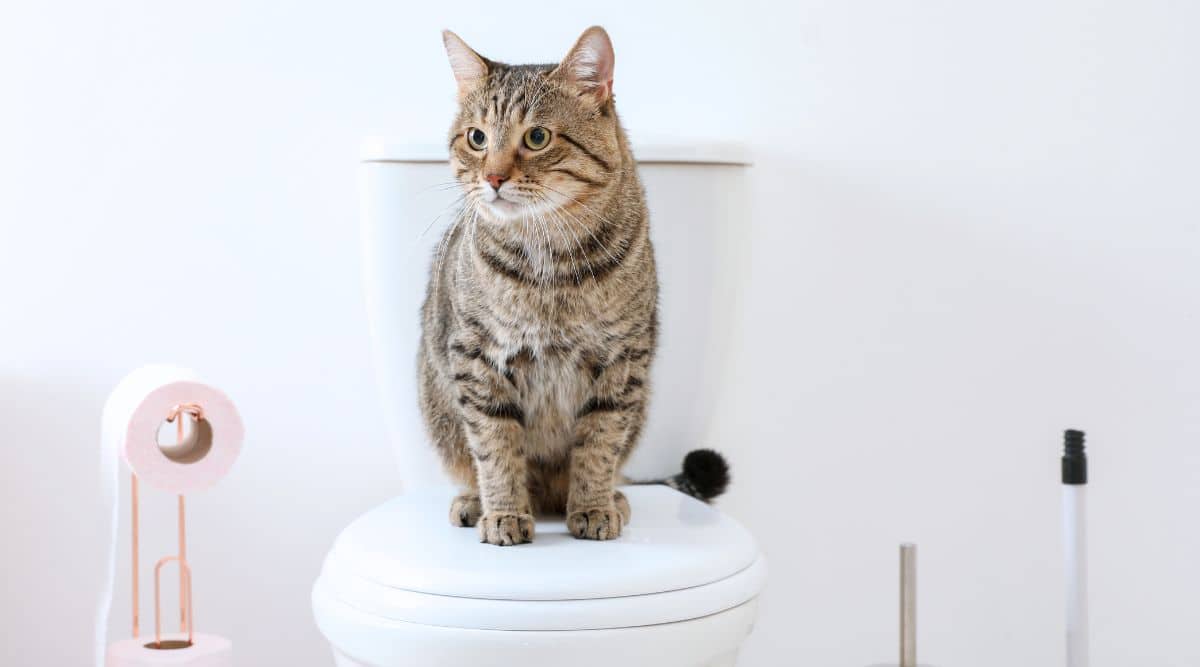Reasons Flushing Cat Poop Down Your Toilet May Cause Problems - Recommendations for Safe Disposal
Reasons Flushing Cat Poop Down Your Toilet May Cause Problems - Recommendations for Safe Disposal
Blog Article
What are your thoughts about How to Dispose of Cat Poop and Litter Without Plastic Bags?

Introduction
As pet cat owners, it's important to be mindful of just how we take care of our feline friends' waste. While it might seem hassle-free to purge feline poop down the toilet, this practice can have destructive repercussions for both the environment and human wellness.
Alternatives to Flushing
Thankfully, there are more secure and a lot more responsible means to throw away pet cat poop. Take into consideration the complying with alternatives:
1. Scoop and Dispose in Trash
One of the most common approach of dealing with pet cat poop is to scoop it into a biodegradable bag and toss it in the trash. Make sure to use a committed litter inside story and deal with the waste without delay.
2. Use Biodegradable Litter
Select biodegradable pet cat litter made from products such as corn or wheat. These litters are environmentally friendly and can be safely thrown away in the trash.
3. Bury in the Yard
If you have a backyard, consider hiding pet cat waste in an assigned location far from veggie gardens and water sources. Be sure to dig deep sufficient to stop contamination of groundwater.
4. Install a Pet Waste Disposal System
Buy a pet garbage disposal system particularly developed for pet cat waste. These systems use enzymes to break down the waste, reducing smell and ecological impact.
Health and wellness Risks
Along with ecological concerns, purging cat waste can likewise present health risks to human beings. Cat feces might have Toxoplasma gondii, a bloodsucker that can create toxoplasmosis-- a potentially serious health problem, specifically for expecting women and people with damaged immune systems.
Ecological Impact
Purging cat poop introduces harmful microorganisms and bloodsuckers right into the supply of water, presenting a substantial threat to marine ecosystems. These contaminants can negatively impact aquatic life and concession water top quality.
Verdict
Liable pet dog possession expands past giving food and sanctuary-- it additionally entails correct waste administration. By avoiding purging pet cat poop down the toilet and going with alternative disposal methods, we can minimize our environmental impact and safeguard human health and wellness.
Why You Should Never Flush Cat Poop Down the Toilet
A rose by any other name might smell as sweet, but not all poop is created equal. Toilets, and our sewage systems, are designed for human excrement, not animal waste. It might seem like it couldn’t hurt to toss cat feces into the loo, but it’s not a good idea to flush cat poop in the toilet.
First and foremost, assuming your cat uses a litter box, any waste is going to have litter on it. And even the smallest amount of litter can wreak havoc on plumbing.
Over time, small amounts build up, filling up your septic system. Most litter sold today is clumping; it is made from a type of clay that hardens when it gets wet. Ever tried to scrape old clumps from the bottom of a litter box? You know just how cement-hard it can get!
Now imagine just a small clump of that stuck in your pipes. A simple de-clogger like Drano isn’t going to cut it. And that means it’s going to cost you big time to fix it.
Parasitic Contamination
Believe it or not, your healthy kitty may be harboring a nasty parasite. Only cats excrete Toxoplasma in their feces. Yet it rarely causes serious health issues in the cats that are infected. Most people will be fine too if infected. Only pregnant women and people with compromised immune systems are at risk. (If you’ve ever heard how women who are expecting are excused from litter cleaning duty, Toxoplasma is why.)
But other animals may have a problem if infected with the parasite. And human water treatment systems aren’t designed to handle it. As a result, the systems don’t remove the parasite before discharging wastewater into local waterways. Fish, shellfish, and other marine life — otters in particular — are susceptible to toxoplasma. If exposed, most will end up with brain damage and many will die.
Depending on the species of fish, they may end up on someone’s fish hook and, ultimately on someone’s dinner plate. If that someone has a chronic illness, they’re at risk.
Skip the Toilet Training
We know there are folks out there who like to toilet train their cats. And we give them props, it takes a lot of work. But thanks to the toxoplasma, it’s not a good idea.

As a fervent reader on How to Dispose of Cat Poop and Litter Without Plastic Bags, I imagined sharing that article post was really useful. Sharing is good. Helping others is fun. Thanks a bunch for your time. Kindly come by our website back soon.
This Site Report this page